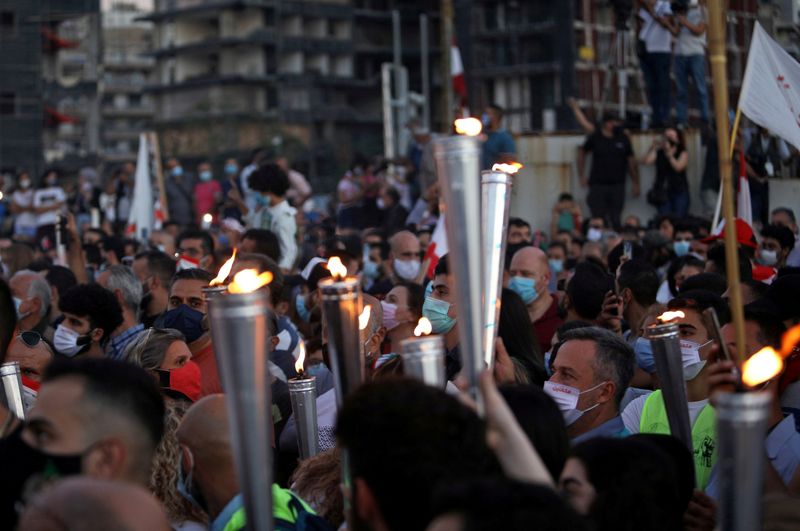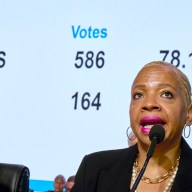BEIRUT (Reuters) – Financial meltdown on a scale never seen before in Lebanon has raised fears for the stability of a country facing multiple crises.
Political chaos, the COVID-19 pandemic and a huge explosion at Beirut’s port, which killed nearly 200 people and caused billions of dollars in damage, have all deepened Lebanon’s troubles.
After months of discord, politicians are set to nominate a prime minister on Thursday to form a new government that must launch a recovery and unlock foreign aid.
Rooted in decades of state waste and graft, the economic crisis erupted last autumn as capital inflows dried up and protests swept the country. A year on, the currency has crashed and banks are paralysed, with prices and job losses on the rise:
RISING POVERTY
The United Nations estimated in May that the proportion of Lebanon’s population living in poverty – or less than $14 per day – had doubled in the last year https://www.unescwa.org/sites/www.unescwa.org/files/20-00268_pb15_beirut-explosion-rising-poverty-en.pdf to 55%. Within that group, those judged to be in extreme poverty tripled to nearly a quarter of the population.
It predicts more people will sink into poverty, widening one of the region’s biggest wealth gaps. Inflation and the port blast have since left yet more Lebanese vulnerable.
SPIRALLING INFLATION
The collapse in the Lebanese pound drove inflation to 120.3% year-on-year in August. Prices of consumer goods have soared in a country that relies heavily on imports but produces little.
For a graphic on Lebanon’s runaway inflation:
https://graphics.reuters.com/LEBANON-CRISIS/INFLATION/dgkvljdmdvb/chart.png
JOB LOSSES, BUSINESSES WIPED OUT
Beirut-based research firm InfoPro, which polled firms three times in the past year, found that a third of all private sector jobs have been lost. The total number of unemployed reached 550,000 or 30% of a total labour force of 1.8 million.
That was in June even before the port blast hit hundreds of businesses. It slashed at least 100,000 jobs in the tourism sector, long a big employer and economic pillar.
CURRENCY CRASH, MANY EXCHANGE RATES
Dollars have grown scarce on the black market – a leading source of cash in the crisis.
An official peg of 1,507.5 Lebanese pounds to the dollar has been in place since 1997. But it is now available only for importers of key goods: wheat, fuel and medicine.
Banks, which cut cash withdrawals and stopped dispensing foreign currency, have paid depositors with dollar accounts in Lebanese pounds at a rate of 3,900.
But the pound’s street value has plummeted by nearly 80%.
For a graphic on Lebanon’s pound slumped in 2020:
https://graphics.reuters.com/LEBANON-CRISIS/POUND/xklpymnmbpg/chart.png
BEIRUT BLAST DAMAGES
The World Bank said the August explosion at Beirut’s port caused damages of between $3.8 billion and $4.6 billion. It also put the hit to the economy at $2.9 billion to $3.5 billion.
After the blast, Lebanon’s external financing needs for the next four years swelled to more than $30 billion from $24 billion by some estimates. Foreign donors have made clear they will not give aid if the state does not reform.
DROWNING IN DEBT
The state declared default on its hefty foreign currency debt earlier this year, citing dangerously low reserves.
Public debt has rocketed from 131% of GDP in 2012 to an estimated 176% of GDP at the end of 2019 – one of the world’s highest burdens.
The government was spending around 50% of its revenues in 2019 just to meet interest payments.
Gross public debt widened to $94.3 billion in August, according to data from Lebanon’s banking association, with Eurobonds accounting for one third of that debt burden.
Lebanese banks, the government’s biggest creditor and the single largest constituency of Eurobonds holders, have traded blame with the state for the crisis. Of the $59 billion in debt denominated in Lebanese pounds, Lebanese banks held 28% of the debt, with 60% held by the central bank.
(Reporting by Ellen Francis and Dominic Evans in Beirut, and Tom Arnold in London, Editing by William Maclean)



















